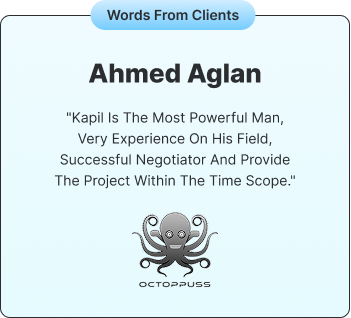The digital revolution has dramatically reshaped the travel industry, making Mobile apps essential for enhancing travel experiences. The Amtrak app Mobile app is at the forefront of this transformation, offering features that simplify and improve train travel. This app leverages cutting-edge advancements in Mobile app development, iOS Development and Android technology, DevOps, digital marketing, and IoT to provide a seamless and enjoyable user experience. With the Amtrak app, travelers can effortlessly plan their journeys, book tickets, and receive real-time updates, setting a new benchmark for travel applications. By integrating these advanced technologies, the Amtrak app exemplifies the future of convenient and efficient train travel. Let’s check out How to build Amtrak app like product for your business.
Transforming Travel Through Mobile App Innovation
Mobile app development has come a long way, and the Amtrak app is a prime example of how these advancements can improve user experience. Utilizing Flutter Development, a popular framework for cross-platform development, the Amtrak app provides a consistent and seamless experience on both iOS and Android devices.
Enhancing Travel Convenience
Mobile apps, particularly Android apps, have revolutionized travel by offering instant access to booking flights, hotels, and transportation from virtually anywhere.. This convenience allows travelers to plan and manage their trips seamlessly, whether they’re at home or on the go.
Streamlining Booking Processes
With mobile apps, travelers can easily book their entire itinerary with just a few taps. This convenience eliminates the need for lengthy processes and cumbersome paperwork. Additionally, integration with payment gateways ensures secure transactions, which further enhances the booking experience. Consequently, making reservations for flights, accommodations, and activities becomes not only faster but also more efficient. Ultimately, these features streamline the travel planning process, allowing travelers to focus on enjoying their journey.
Personalizing Travel Experiences
Advanced Mobile app development allows for personalized travel experiences based on user preferences and behavior. From tailored recommendations for destinations and activities to personalized notifications and offers, apps enhance the journey by catering to individual needs.
Improving Communication and Accessibility
Mobile apps facilitate real-time communication between travelers and service providers. For example, they offer updates on flight statuses, gate changes, and local weather conditions. Moreover, amtrak app access to essential travel information, such as maps and local guides, ensures that travelers are well-informed throughout their journey. This combination enhances the travel experience, allowing for informed decisions and smoother adventures.
Embracing Innovation with Technology
The integration of cutting-edge technologies like AI, AR, and machine learning in Mobile app development enhances travel experiences. Features such as language translation, virtual tours, and augmented reality navigation provide immersive and informative experiences for travelers.
Ensuring Security and Reliability
Robust security measures implemented in mobile app development play a crucial role in safeguarding users’ personal information and financial transactions. Specifically, secure authentication and data encryption protocols not only protect sensitive data but also ensure trust and reliability. As a result, these measures enhance user confidence in using travel apps. Furthermore, by prioritizing security, developers can create a more reassuring environment for travelers, ultimately improving their overall experience.
Driving Sustainable Travel Practices
Mobile apps promote sustainable travel by reducing paper waste through e-tickets and digital guides. Encouraging eco-friendly choices, such as carbon footprint calculators and green travel tips, supports environmentally conscious travel behaviors.
Understanding the Travel App Landscape
The amtrak app like travel app market is diverse and competitive, encompassing everything from booking platforms and itinerary planners to language translators and local guides. Before diving into App development, it’s crucial to conduct thorough market research. Identify existing apps, analyze their features, and pinpoint gaps or areas for improvement. Understanding user preferences and pain points will provide valuable insights for shaping your app’s unique value proposition.
Travel app types

Booking and Reservation Apps
These apps are essential for travelers looking to book flights, hotels, rental cars, and other accommodations. Not only do they streamline the booking process, but they also offer comparisons, making it easier to find the best options. Additionally, many of these apps include loyalty rewards, which can further enhance the user experience. For instance, popular platforms such as Expedia, Booking.com, and Airbnb have revolutionized the concept of accommodation booking by providing unique stays that cater to diverse preferences. Ultimately, these features collectively empower travelers to make informed decisions and enjoy a seamless booking experience.
Navigation and Maps Apps
Navigation apps are indispensable for travelers navigating unfamiliar territories. They provide real-time directions, traffic updates, and offline maps. Google Maps is widely popular for its comprehensive maps, transit information, and Street View feature, while Waze excels in community-sourced traffic and road information.
Itinerary Planning Apps
These apps help travelers organize their trips by suggesting activities, attractions, and dining options. They often integrate with booking platforms to create seamless itineraries. TripIt stands out by automatically compiling travel plans from confirmation emails, while Sygic Travel offers detailed city guides and offline maps.
Review and Recommendation Apps
Travelers increasingly rely on these apps to read reviews and recommendations for hotels, restaurants, attractions, and services from fellow travelers. Specifically, TripAdvisor is renowned for its extensive database of user-generated reviews and rankings. As a result, it guides decisions with valuable insights and photos shared by millions. Furthermore, this wealth of information allows travelers to make more informed choices, ultimately enhancing their overall experience. Consequently, these apps not only help users find great places but also foster a sense of community among travelers.
Budget and Expense Tracking Apps
Managing finances is simplified with apps that track expenses, offer currency conversion rates, and provide budgeting tips. Trail Wallet is favored for its simplicity in recording expenses across multiple currencies, while XE Currency is a go-to for accurate exchange rates.
Language Translation Apps
Overcoming language barriers becomes effortless with translation apps that can translate text, speech, and even images in real-time. For instance, Google Translate leads the way with its extensive language support and offline capabilities. As a result, it makes communication seamless across languages and cultures. Moreover, these features not only enhance interactions but also empower travelers to navigate new environments with confidence. Consequently, users can engage more meaningfully with locals, enriching their travel experiences even further.
Local Discovery Apps
These apps offer insights into local culture, events, and hidden gems, helping travelers experience destinations like locals. Time Out provides curated city guides and event recommendations, while Yelp offers user reviews and business details for dining and entertainment options.
Weather Forecast Apps
Travelers stay informed about weather conditions at their destinations with apps that provide forecasts and alerts. AccuWeather delivers hyper-localized forecasts and severe weather alerts, while The Weather Channel offers detailed radar maps and storm tracking.
Travel Safety and Emergency Apps
These amtrak app like apps prioritize traveler safety by offering emergency contact information, safety tips, and alerts for natural disasters or political unrest. GeoSure assesses safety levels in destinations based on real-time data, while TravelSafe Pro provides emergency numbers and embassy contacts worldwide.
Travel super app vs. Dedicated app vs. Segment app
Travel Super App: Imagine a Travel Super App like Goibibo—it’s your ultimate travel companion. It’s packed with everything you need for your trip, all in one place. From booking flights and hotels to finding local guides and using handy translation tools, it’s like having a personal assistant for your entire journey. Whether you’re planning ahead or need something on the go, this app covers all your travel needs seamlessly.
Dedicated App: Now, think of a Dedicated Android App such as Agoda. These apps are specialists in their field. They focus intensely on one aspect of travel, like booking hotels or flights. They aim to excel in their specific area, providing users with top-notch service and expertise tailored to their particular travel needs.
Segment App: Segment Apps strike a balance by focusing on a specific type of travel, like business trips, adventure travel, or luxury getaways. They offer specialized features that cater specifically to that segment. Whether you’re a frequent business traveler looking for efficiency or an adventure seeker seeking adrenaline-pumping experiences, these apps cater to your specific style of travel.
Why Do You Need A Travel App?

All-in-One Convenience: Investing in a travel app means creating a single place where travelers can handle everything from booking tickets to planning their entire trip. Imagine having one reliable app that takes care of all your travel needs it simplifies the whole experience.
Instant Access to Info: Traveling to new places can be overwhelming. A well-designed travel app solves this by giving users the right information at their fingertips. Whether it’s finding the best local spots or checking flight details, the app saves travelers both time and money by providing instant updates whenever they need them.
Easy, Secure Payments: One of the best things about travel apps is how they make payments hassle-free. You can book and pay for everything through a secure platform, saving you the trouble of dealing with different websites or worrying about the safety of your transactions.
How travel apps make money?

Advertising:
● Travel apps can earn money by displaying advertisements within the app. This can include banner ads, interstitial ads, or video ads. Companies pay to have their ads shown to the app’s users, providing a source of revenue for the app developers.
In-app Purchases:
● Many travel apps offer additional features or services that users can purchase within the app. These could include premium services like offline maps, exclusive travel deals, or advanced itinerary planning tools. These purchases enhance the user experience and provide a direct revenue stream for the app.
Affiliate Marketing:
● Travel apps often partner with other travel-related businesses, such as airlines, hotels, and car rental companies. When users book services through the Mobile App like Amtrak App, the app earns a commission on each sale. This is a mutually beneficial arrangement that helps the app monetize its user base while providing value to users by offering convenient booking options.
Subscription Fees:
● Some travel apps offer subscription models where users pay a recurring fee to access premium features or exclusive content. This can include benefits like ad-free experiences, priority customer support, or early access to special deals. Subscriptions provide a steady and predictable income for the app.
Partnerships & Sponsorships:
● Travel apps can form partnerships with travel agencies, tourism boards, and other industry players. These partnerships can involve co-branded marketing campaigns, sponsored content, or exclusive promotions. Through these collaborations, apps can earn sponsorship fees and broaden their market reach.
Tech Stack for Travel App Development
Creating a powerful travel app demands expertise in multiple areas of mobile app development. This involves strong skills in both frontend and backend development, as well as a keen eye for UI/UX design. It also requires seamless integration with cloud platforms and payment systems, among other vital components. A proficient mobile app developer should have a comprehensive understanding of these elements, which are crucial for building a successful travel app. It’s important to hire dedicated mobile app developers who are adept at using the latest technology stacks. These professionals can effectively turn your travel app concepts into reality, ensuring your app not only meets but exceeds user expectations. By leveraging their skills, you can create a travel app that is functional, user-friendly, and technologically advanced
Travel App Market & Industry Forecasts

The chart illustrates the projected growth of the travel app market from 2018 to 2026. In 2018, the market value was $185.90 million and it is expected to grow steadily each year. By 2020, the value rose to $245.30 million, and it continued to increase, reaching $295.80 million in 2022. The growth trend is projected to continue, with the market expected to hit $436.80 million by 2024 and $507.00 million by 2026. This consistent upward trend underscores the increasing demand and popularity of travel apps, reflecting how integral they are becoming in planning and managing travel experiences.
Key Features of a Travel App
User Registration and Profile Management
● Benefits: Enhances user experience by providing customized recommendations and streamlined booking processes.
Flight and Hotel Booking Integration
● Benefits: Enables seamless booking directly within the app, simplifying travel planning for users.
Interactive Maps and Navigation
● Benefits: Helps travelers navigate destinations, discover nearby points of interest, and plan their itineraries effectively.
Trip Itinerary Management
● Benefits: Organizes travel plans in one place, facilitating collaboration and enhancing trip organization.
Real-Time Alerts and Notifications
● Benefits: Keeps users informed and engaged throughout their journey, improving overall travel experience.
Offline Access to Travel Information
● Benefits: Ensures travelers have critical information at hand in remote areas or with limited network coverage.
Language Translation and Currency Converter
● Benefits: Overcomes language barriers and simplifies monetary transactions for international travelers.
Reviews and Ratings
● Benefits: Helps users make informed decisions and fosters trust within the travel community.
Social Sharing and Community Features
● Benefits: Enhances social engagement, inspires travel planning, and builds a sense of community among users.
Safety and Emergency Features
● Benefits: Enhances traveler safety and provides peace of mind, ensuring users are prepared for unforeseen situations.
Secure Payment Options
● Benefits: Facilitates safe and convenient financial transactions within the app, ensuring user data protection.
Analytics and Insights
● Benefits: Offers valuable insights for app optimization, personalized marketing strategies, and informed decision-making.
Benefits of Having a Travel App for Your Business

1. Enhancing Customer Experience
Imagine your customers being able to plan their entire trip from their phones – booking flights, finding accommodations, and mapping out their itinerary with just a few taps. A travel app offers convenience like never before, making it easier for travelers to manage their journeys seamlessly.
2. Boosting Customer Loyalty
By offering personalized recommendations and exclusive deals through your app, you can keep customers engaged and coming back for more. Push notifications about special offers or updates ensure they stay informed and connected with your brand, fostering loyalty over time.
3. Streamlining Operations
From automated booking systems to real-time updates on availability, a travel app streamlines your business operations. This efficiency not only saves time but also reduces costs associated with manual processes, allowing you to focus more on delivering excellent service.
4. Marketing Powerhouse
Your travel app isn’t just a tool; it’s a marketing powerhouse. With features like app store optimization and targeted advertising, you can reach potential customers directly. By analyzing user data, you can tailor your marketing efforts and improve conversion rates, maximizing the app’s potential to drive business growth.
5. Real-Time Insights and Decision Making
The data collected through your app provides invaluable insights into customer behavior and market trends. This real-time information helps you make informed decisions about your business strategy, ensuring you stay competitive and responsive to changing demands.
6. Standing Out in a Competitive Market
In a crowded travel industry, a well-designed app sets you apart from competitors. Offering unique features and a seamless user experience not only attracts tech-savvy travelers but also positions your brand as a leader in innovation and customer satisfaction.
7. Supporting Customers During Crises
During unforeseen events or travel disruptions, your app becomes a lifeline for customers. Instant notifications and access to emergency contacts ensure travelers receive timely assistance, building trust and loyalty even in challenging situations.
8. Embracing Sustainability
Digital solutions like travel apps promote sustainable tourism practices by reducing paper waste and carbon footprints associated with traditional methods. Encouraging users to opt for e-tickets and digital guides supports eco-friendly travel choices, appealing to environmentally conscious travelers.
9. Expanding Your Reach
A successful travel app opens doors to new markets and global audiences. By offering multi-language support and localized content, you can cater to international travelers and forge partnerships with local businesses, expanding your reach and enhancing your app’s value proposition.
Challenges and Solutions in Amtrak app Like Travel App Development
User Experience (UX) Design
Challenge lies in creating an intuitive interface that simplifies complex travel functionalities. Solutions involve conducting thorough user research to understand traveler behaviors and preferences, ensuring seamless navigation, and prioritizing essential features for a streamlined experience.
Integration of Multiple APIs
Developing a travel app often requires integrating various APIs (for flights, hotels, attractions, etc.), which can be complex and time-consuming. Solutions include using robust API management tools, ensuring compatibility and reliability, and optimizing data handling for smooth information flow.
Performance Optimization
Balancing functionality with performance is crucial to prevent app lag or crashes, especially with real-time updates and data processing. Solutions involve rigorous testing across different devices and network conditions, implementing efficient caching strategies, and leveraging cloud services for scalable performance.
Security Concerns
With sensitive user data involved (payment details, personal information), security is paramount. Solutions encompass implementing data encryption, adhering to industry standards (like GDPR compliance), conducting regular security audits, and ensuring secure payment gateways.
Offline Functionality
Travelers often face connectivity issues while on the move. Solutions include enabling offline access to essential information (like itineraries, maps), caching data locally, and synchronizing updates once connected.
Continuous Updates and Maintenance
Keeping the app relevant and bug-free requires ongoing updates and maintenance. Solutions involve setting up a structured update schedule, collecting user feedback for improvements, and proactively addressing issues reported through analytics and support channels.
How to create a travel app like Amtrak app in five steps?

Generate and Validate Ideas
Ideas brainstorm & addressing traveler needs.
Create user personas for targeted development.
Competitors research and user feedback.
Select Features and Platforms
Choose core features like booking and navigation.
Decide on native, hybrid, or web app development.
Sketch UI for intuitive design.
Choose a Development Team
Select experienced developers.
Ensure clear communication and agile practices.
Test, Gather Feedback, and Iterate
Conduct thorough testing and bug fixing.
Collect user feedback for continuous improvement.
Market Your App
Implement ASO and social media strategies.
Monitor metrics and adjust marketing efforts.
Tips to Consider While Developing a Traveling Mobile App Like Amtrak App
1. Understand Your Target Audience
Know Your Users: The first step in mobile app development is understanding who your users are. Conduct thorough market research to identify the needs and preferences of your target audience. Are they business travelers, backpackers, or families? Understanding their pain points will help you design features that cater to their specific needs.
2. Focus on User Experience (UX)
Simplicity is Key: A user-friendly interface is crucial for any travel app. Ensure that the navigation is intuitive and the design is clean. Users should be able to find information and complete tasks with minimal effort. Remember, a Web Design can significantly enhance user satisfaction and retention.
3. Incorporate Essential Features
Must-Have Features: Some features are indispensable for a traveling mobile app. These include:
Easy Booking System: Allow users to book flights, hotels, and rental cars effortlessly.
Real-Time Updates: Provide real-time information on flight statuses, hotel bookings, and weather conditions.
Navigation and Maps: Integrate maps and GPS to help users find their way around new destinations.
Local Information: Offer details about local attractions, restaurants, and events.
4. Leverage Advanced Technologies
Embrace Innovation: Utilize the latest technologies to enhance your app. Features like augmented reality (AR) can provide immersive travel experiences, while artificial intelligence (AI) can offer personalized recommendations. IoT Services can provide real-time updates on travel schedules and accommodations.
5. Ensure Offline Functionality
Stay Connected: Travelers often find themselves in areas with poor or no internet connectivity. Therefore, it’s essential to ensure your app can function offline by allowing users to download maps, itineraries, and essential information for offline access. Moreover, this feature not only enhances user experience but also provides peace of mind, enabling travelers to navigate confidently even when they lack internet access. Consequently, offering offline functionality can significantly improve the overall usability of your app, making it a valuable tool for every journey.
6. Optimize for Performance
Speed Matters: Your app should load quickly and run smoothly. Optimize images, reduce load times, and ensure that your app performs well even under poor network conditions. A fast, responsive app enhances the user experience significantly.
7. Prioritize Security
Protect User Data: Security is paramount, especially when handling sensitive information like credit card details and personal data. Implement robust security measures such as encryption, secure payment gateways, and two-factor authentication to protect your users.
8. Regular Updates and Maintenance
Stay Up-to-Date: Mobile app development doesn’t stop at the launch. Regularly update your app to fix bugs, improve performance, and add new features. Listen to user feedback and continuously refine your app to meet their evolving needs.
9. Implement a Feedback System
User Insights: Incorporate a feedback system to allow users to share their experiences and suggestions. This will help you understand what works and what needs improvement, enabling you to make data-driven decisions.
10. Effective Marketing Strategy
Promote Your App: Even the best app needs effective marketing to reach its audience. Utilize Digital marketing strategies such as social media campaigns, influencer partnerships, and search engine optimization (SEO) to increase visibility and attract users.
Conclusion
Addressing the challenges of travel app like amtrak app development requires strategic solutions, which are crucial for creating a seamless user experience. However, to ensure optimal results, partnering with a trusted provider like Team Tweaks Technologies can make all the difference.At Team Tweaks Technologies, we excel in custom software development across web Development, mobile, and cross-platform solutions. Our team employs innovative strategies to effectively tackle the hurdles encountered in app development. If you’re looking to hire skilled travel app developers and build a scalable mobile app for your business, don’t hesitate to get in touch with us. We’re committed to delivering tailored solutions that meet your specific needs and elevate your travel app to new heights of success.














